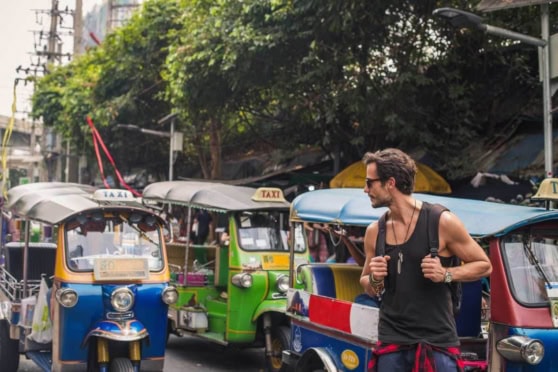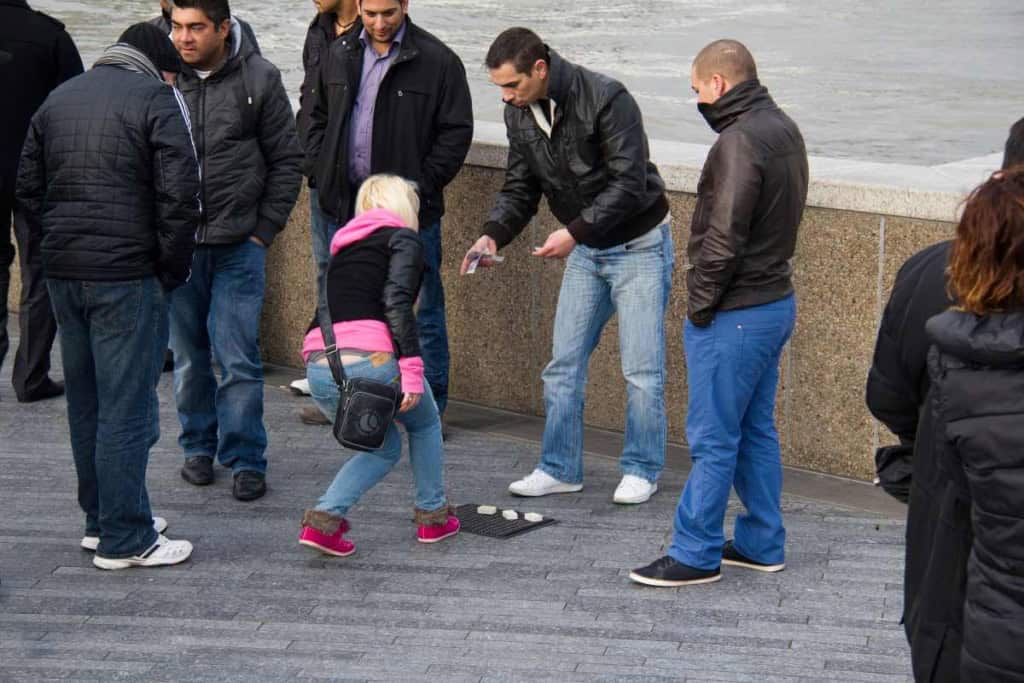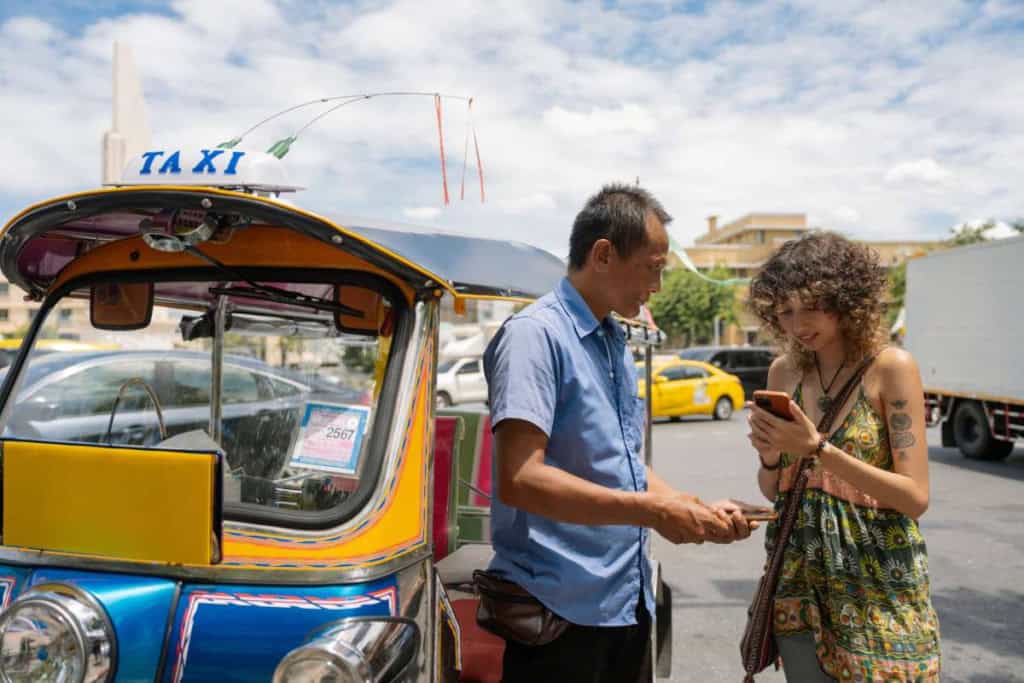Digital Nomad Tips: A Guide to Working While Traveling in 2026
Discover essential digital nomad tips to thrive while working remotely, including managing time zones, staying healthy, protecting your devices, and making friends abroad.

International medical cover for expats and their families.
Medical and trip cancellation coverage for international travel.
Life insurance for globally mobile individuals living or working abroad.
Comprehensive international medical coverage for groups.
Medical, accident, and liability protection for global travel.
Financial protection for employees worldwide.
Most Popular Country Guides
Healthcare, insurance, and living insights to plan life and travel in each destination.
Healthcare, safety, and practical guidance for living abroad.
Tips and guidance for safer, smarter international travel.
Resources for global mobility, HR, and international teams.
Protect yourself from common travel scams with top tips on staying safe, reporting fraud, and safeguarding your trip with travel insurance.


Whether you’re chasing adventure, relaxation, or a change of scenery, traveling opens up endless opportunities for discovery – but it also comes with risks.
You can easily let your guard down when you get caught up in the excitement of the moment. Tourists often have money to spend, make quick decisions, and may be unfamiliar with local languages or customs, making them prime targets for travel scams.
Falling victim to a scam can quickly ruin an otherwise perfect vacation. Some cons, like shortchanging, have been around for centuries. But as travel becomes more digital, scammers are finding new ways to separate you from your money.
In fact, in 2025, the U.S. Better Business Bureau (BBB) issued multiple warnings about the rise in travel-related scams, particularly those involving online bookings.
Knowing what to watch out for can protect you at every stage of your trip. To make it easier, we’ve compiled the top ten most common travel scams to avoid while abroad.
We’ll also share essential tips for staying safe, reporting fraud, and protecting your journey with travel insurance.

Travel scams are an unfortunate reality for many travelers and can occur at any stage of the journey, from booking flights to exploring a new city or visiting local attractions.
However, recognizing the different forms of deception can help you avoid becoming a victim.
A scam is a deceptive act intended to trick someone into giving up money or personal information without fair compensation.
Travel-related fraud specifically targets individuals through bookings, financial transactions, or tourist experiences.
Travelers are prime targets because they often spend money in unfamiliar environments. Language barriers, different customs, and the general chaos of transit make them even more vulnerable.
Additionally, tourists are typically outsiders, which reduces the likelihood that offenders will face legal consequences.
Travel scams generally fall into two main categories: online and in-person.
Online scams often involve fake websites or ads that trick travelers into paying for services like lodging, flights, visas, or tours that don’t exist. Other scams, such as romance fraud or ATM skimming, also target travelers in the digital space.
In-person scams typically rely on high-pressure sales tactics, deception, or outright criminal activity to separate travelers from their money. Common examples include low-quality tours, restaurants with inflated prices, or aggressive “tourist pricing” that borders on fraud. In more extreme cases, travelers may encounter coercion, theft, inflated bills, or even physical assault.
Travel scams are a global issue, and with the rise of online culture, a successful con in one destination can quickly spread to others.
Popular hotspots are also prone to unique local scams that specifically target tourists. Here are the top scams to watch for in some of the world’s most visited destinations.
A lodging scam occurs when a scammer convinces travelers to book a place that either doesn’t exist or that they deliberately misrepresent.
For example, you might book a property on Airbnb, only to arrive and find the address doesn’t exist or the building is closed.
On platforms like Booking.com, scammers may impersonate a rebranded or closed hotel and collect payment for fake bookings.

Another common scam involves a claim that there is an issue with your booking, followed by an offer to move you to another property. This alternative is always of inferior quality and lower value than what you originally paid.
Lodging scams are particularly common in expensive destinations like New York City and Miami, and during major events like the Super Bowl.
Online scams have increasingly affected both Canadians and travelers heading to Canada. In 2024, fraudsters impersonated a major travel agency in Canada and set up fake websites to accept bogus travel bookings.
Scammers are also using AI chatbots and images more than ever to support these travel agent scams. Shockingly, this has impacted as many as 32% of Canadians.
Visitors to Canada are also targets for scam websites that charge higher fees for the Canadian Electronic Travel Authorization (eTA).
The Canadian government provides official guidelines and an eTA Check Status tool for those who believe they have fallen victim to these scams.
In the UK, visitors to London may encounter one of the oldest travel scams: the shell game.
The shell game seems simple. A street busker invites you to bet on the outcome of a game where they hide a ball under one of three cups. It’s so basic that it seems like it must be easy to win.
However, buskers are often highly skilled and part of organized rings, causing tourists to lose money. Additionally, this type of gambling is illegal in the UK.
While London police are actively working to shut down this activity, the threat remains. In fact, in February 2025, a pair of illegal gamblers attempting to “fleece” tourists on Westminster Bridge were arrested by Metropolitan Police officers dressed as Batman and Robin.

The police officers, who had become well-known to local gambling gangs, used this creative approach to catch the criminals off guard.
Illegal gambling operations, including the “three cups challenge” and “shell game,” have long targeted tourists on Westminster Bridge.
However, thanks to the police’s clever approach, they were able to arrest the offenders and protect tourists from being scammed.
Mexico has long been a favorite destination for North American travelers seeking warmth and adventure.
While many tourists are aware of risks such as pickpocketing in crowded areas or aggressive buskers, they might not know about a far more damaging scam: ATM skimming.
In ATM skimming, sophisticated criminals target ATM users to steal extra money from ATM transactions or even drain bank accounts.
In a notorious case, a Romanian-led syndicate, led by Florian Tudor, known as “The Shark,” carried out one of the largest ATM heists in history, targeting tourist hotspots in Mexico.
The gang installed skimming devices on ATMs to capture card details and withdraw funds from accounts.
Between 2014 and 2019, they scammed an estimated $1.2 billion, using up to 100 rigged ATMs across tourist areas like Cancún and Playa del Carmen, while hiding behind a legitimate front company connected to a Mexican bank.
Despite the ongoing criminal activity, law enforcement and banking authorities were slow to act. The gang continued its operations for over three years, even after Romanian authorities raised warnings.
Investigative journalist Brian Krebs brought the scandal to light in 2015. However, the criminals persisted until pressure from Mexican authorities eventually forced them to shut down in 2019.

Avoid Pickpockets! Thieves often target tourists with overstuffed backpacks or large totes. Opt for a smaller crossbody bag to carry your essentials, as it’s easier to secure. You can also use zipper locks or carabiners to prevent unauthorized access to your backpack.
Thailand is a very popular travel destination thanks to its vibrant culture, stunning landscapes, and bustling city life.
Tuk-tuk drivers often offer visitors rides in their three-wheeled open vehicles in hotspots like Bangkok, Phuket, and Chiang Mai.
While tuk-tuk fares are typically modest, drivers often take detours to businesses catering to tourists, such as gem shops or tailor shops.
If you request to visit a popular destination like a temple, the driver might claim it’s closed and suggest an alternative route to these shops instead.

Some tuk-tuks even offer “free” rides, but the drivers are guaranteed to put you under intense pressure to shop at stops along the way.
Many tourists get into a tuk-tuk, aware of the shopping detours, and may even enjoy bargaining with the driver and shopkeepers.
However, this inadvertently encourages the “shopping detour” practice to continue, keeping the scam alive.
Japan is considered one of the safest countries in the world. However, there is a shady practice in nightlife districts like Shinjuku and Kabukicho in Tokyo.
Touts, or “helpful individuals,” try to lure visitors into bars or restaurants that charge exorbitant fees or, in some cases, spike drinks.
These touts often claim to represent well-known and reputable establishments but will ultimately take you to less trustworthy venues, where tourists are typically overcharged or subjected to uncomfortable situations.
Solo travelers, particularly those seeking company or a local experience, are often prime targets of this scam. It’s easy to get caught up in the excitement of Tokyo’s nightlife.
However, the risk of encountering fraud is high when entering unfamiliar bars or establishments based on the recommendation of someone you’ve just met.
To avoid falling victim to these types of scams, it’s best to book a reputable nightlife tour with a knowledgeable guide who can steer you clear of potential traps.
If you do find yourself in a situation where you feel taken advantage of, you can report the incident to the 24-hour Japan Visitor Hotline. This is available to assist foreign visitors in cases of fraud or unfair treatment.
According to Transparency International’s Corruption Perceptions Index, Australia ranks as the 10th most honest country in the world.
However, both locals and tourists can fall victim to dishonest taxi drivers, especially in major cities like Sydney, Melbourne, and Brisbane.
The overcharging can happen in several ways. In some cases, unlicensed taxis, often found at high-traffic areas like airports or tourist hotspots, may impersonate legitimate taxis or use unmarked vehicles to deceive passengers and charge them excessive rates.

Make a Scam Plan! Are you traveling with a spouse, family members, or friends? Before your trip, have a conversation about travel scams and safety. It’s important to agree on a plan in case scammers approach you. Teenagers and senior travelers are often more vulnerable to scams, so be extra cautious, as scammers may target them more frequently.
However, even licensed taxis can overcharge by taking longer routes, using faulty meters, or driving during high-demand hours.
Taxi overcharging is particularly common with airport transfers, where drivers often charge inflated fares, or sometimes even double them.
If a driver overcharges you, you can complain to the NSW Taxi Council (for New South Wales), Victoria’s Department of Transport (for Victoria), or the Department of Transport and Main Roads (TMR) (for Queensland).
Italy, Spain, France, and Germany are among the most popular travel destinations in Europe, attracting millions of tourists from around the world each year. Scammers are well aware of this and often target them in these busy spots.
As Europe travel expert Rick Steves points out, “Europe is a surprisingly creative place when it comes to travel scams.”
Here are some of the most common scams to be aware of at crowded tourist attractions across the continent:
If you experience theft or financial loss due to a scam while traveling, it’s essential to report the incident to both the local police and your travel insurer.
Your insurer may require a copy of the police report within a specific timeframe to process your claim.

To report a scam while abroad, start by contacting your country’s embassy. They can provide guidance on how to report the incident to local authorities.
When speaking with embassy officials, use the phrase “victim of crime” to clearly explain your situation.
Read more about the best international credit cards for living abroad.
In many tourist destinations, there are dedicated tourist police who are familiar with common scams and can offer assistance.
For example, you can report a scam to the Consumers’ Federal Prosecutor (PROFECO) in Mexico City. Always follow the instructions of local authorities to ensure they properly document the incident.
If you fall victim to a scam by a fake travel website while still at home, it’s important to report it both to your local police and your country’s anti-fraud authorities.
These authorities can guide you on the next steps. If you are in the United States, you can also report online fraud at the state level by searching for “report online fraud in” followed by your state’s name.
Again, your police and anti-fraud reports will also be helpful for any insurance claims you need to make.
Travel insurance can provide financial protection if you fall victim to a travel scam, depending on the specific benefits included in your policy.
Below are some key coverage benefits that can help you manage the financial consequences of a scam:

Check Your Travel Policy. Not all travel plans offer the same coverage. Always review your policy carefully to understand what’s included and take steps to protect yourself. Remember that your policy may be voided if negligence or impairment (e.g., alcohol or drugs) contributed to the scam.
If you fall victim to financial fraud, such as a scam related to your travel or bookings, travel insurance may assist you. Ensure you have insurance before traveling to cover your trip and your planning process.
To be covered, the scam must occur when your insurance is valid. You will also need to provide receipts and booking documents to support your claim and file it by the claim deadline.
While travel policies can cover many scam-related expenses, certain types of fraud, like major financial fraud (e.g., unauthorized bank access), may not be fully covered.
In these cases, you should contact your bank or credit card provider to understand their fraud protection services.
If you fall victim to a personal scam while traveling, such as a romance scam or identity theft, your travel plan may offer limited support.
That said, contacting your insurer will help document the incident, which may support claims with other service providers.
Discover how to prevent identity theft while abroad and how you can find out if someone is using your identity.
Now that you’re aware of common travel scams, here are five ways to stay scam-smart and protect yourself while traveling:
If you encounter a scam or find a helpful resource, feel free to share it with us at International Insurance.

Compare top-rated travel insurance plans for your upcoming trip abroad.
Travelers often have questions about scams and scam situations. Use these answers to stay informed, and be sure to share them with your family and friends, too.
Yes, unfortunately, scams can occur on Airbnb. Some scammers misrepresent properties by using falsified photos or reviews.
After your stay, you may be charged for damages or extra cleaning that wasn’t required.
Airbnb has clear guidelines and anti-fraud policies to help protect users. If you suspect a scam, report it directly to Airbnb.
To identify whether a travel website is legitimate, check for inconsistencies in the website URL, such as spelling errors or unusual variations – this is often a sign of a scam.
Additionally, be cautious of deals that seem too good to be true. For travelers to Europe and the UK, Getsafeonline.org offers a website checker tool to verify if a site has been flagged for scams.
Learn How to Avoid the Scams That Target Tourists Worldwide.Scammers are skilled at building trust quickly. Some scammers, like panhandlers in a crowd, ask for money almost immediately, while others may engage in lengthy conversations to gain your trust.
Beware: the more money they ask for, the longer they’ll work to establish a connection. If something feels off, don’t hesitate to cut the interaction short.
If you notice that someone you’re traveling with is interacting with a scammer, take action to intervene safely. Use your best judgment and street smarts.
It’s okay to be firm and even a little rude to get them away from the situation. Sometimes, it might be necessary to sacrifice a small amount of money to avoid a larger loss.